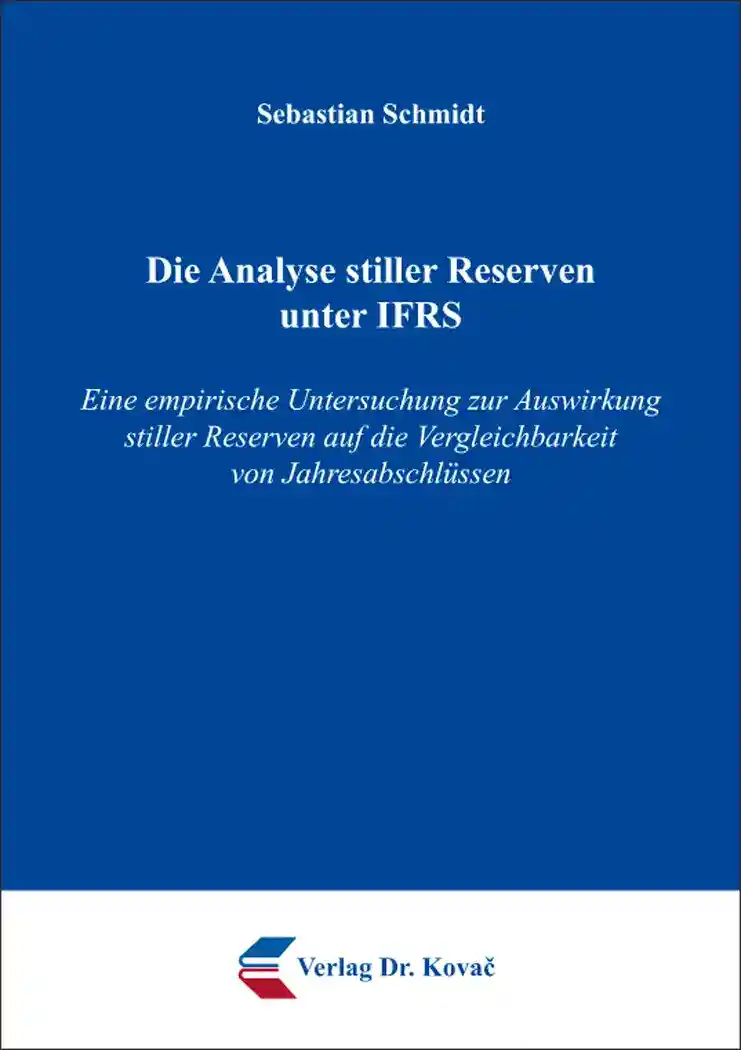Sebastian SchmidtDie Analyse stiller Reserven unter IFRS
Eine empirische Untersuchung zur Auswirkung stiller Reserven auf die Vergleichbarkeit von Jahresabschlüssen
Schriften zum Betrieblichen Rechnungswesen und Controlling, volume 133
Hamburg 2015, 248 pages
ISBN 978-3-8300-7974-3 (print)
ISBN 978-3-339-07974-9 (eBook)
About this book deutschenglish
The application of IFRS has caused a broad variety of examinations in literature. Numerous research studies in this context refer to accounting quality, comparability of financial reports and whether fair-value accounting is superior to historical-cost principles or not. All these issues have in common that hidden reserves, as the difference between historical book values and their fair value counterpart, play an important role in these fields. Nevertheless, there is currently no detailed examination showing empirical data about hidden reserves. Using information from 456 Purchase Price Allocations, this study is the first to show which balance sheet items mainly comprise hidden reserves and to what extent. Furthermore this investigation examines if specific factors of a company like size, country of origin or industry membership also indicate different odds to observe hidden reserves The results show that hidden reserves exist in all balance sheet items, even in positions which are not supposed to contain reserves or only to a small degree. For instance, it can be shown that fewer hidden reserves than expected exist in provisions but higher portions in inventories. Results also indicate that the probability to observe hidden reserves under IFRS seems to be dependent on certain factors. Therefore the study clearly reveals that large companies show hidden reserves more frequently than small companies. Furthermore, entities from particular countries exhibit significantly higher odds to hold hidden reserves than others. In consequence, it has to be assumed that the comparability of financial statements under IFRS is still not achieved. Results are of interest to investors and analysts, standard setters and other researchers. On the one hand investors and analysts gain information on financial statement analysis, especially which balance sheet items bear an increased risk of being distorted by hidden reserves. IFRS standard setters on the other hand receive feedback regarding their aim to provide comparability on financial reporting issues.Keywords
AnschaffungskostenprinzipBilanzanalyseFair ValueIFRSIFRS-AbschlussIFRS 3JahresabschlussanalyseKaufpreisallokationLogistische RegressionRechnungswesenStille ReservenVergleichbarkeit von JahresabschlüssenYour book at Dr. Kovač Publishing House
We publish your doctoral thesis >>
